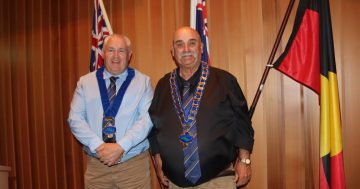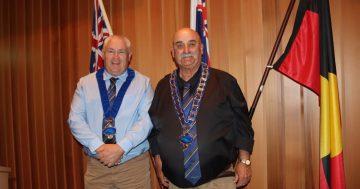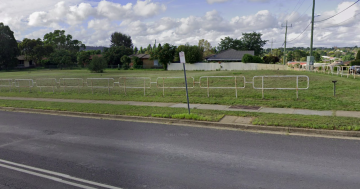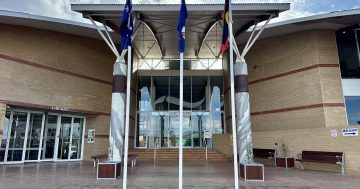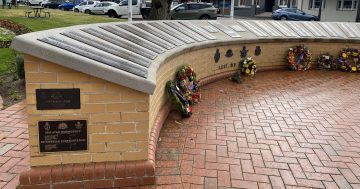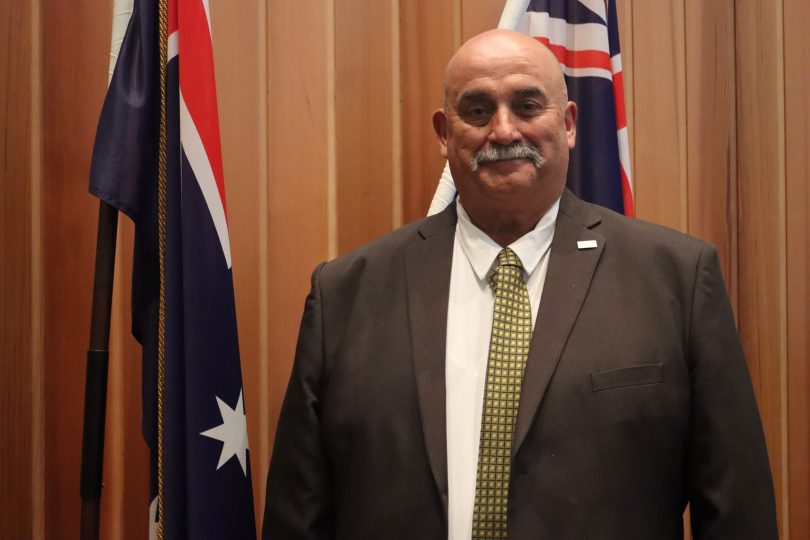
Goulburn Mulwaree councillors voted in Peter Walker as mayor at the beginning of this year. At their most recent council meeting, they determined to keep the current system where councillors elect the mayor. Photo: Goulburn Mulwaree Council.
The people of the Goulburn-Mulwaree region remain unable to vote for their mayor, as the councillors voted against offering a referendum for a popularly elected mayor at the next council election.
The motion was accompanied by a report from then-general manager Warrick Bennett, recommending the council conduct a constitutional referendum at the 2024 election allowing the Goulburn-Mulwaree community to decide if the mayor should be elected by the people or by the councillors. Mr Bennett’s immediate resignation was announced later that afternoon, ending his eight-year tenure as general manager.
The report follows the January 2022 mayoral election in which new mayor Peter Walker bested former mayor Bob Kirk, despite Cr Kirk receiving the most votes from the public.
The charged debate over the motion ended six to three in favour of retaining the current system where councillors elect the mayor.
Crs Kirk, Michael Prevedello and Dan Strickland were the three to vote in favour of the motion.
The motion’s origin came under scrutiny by Cr Jason Shepherd, who questioned Warwick Bennett’s motive.
“Is this a legal motion? Because this is a political motion on an election matter raised by a general manager who is not supposed to be political?” Cr Shepherd probed.
It was part of a tense debate beginning with Cr Prevedello revealing he was a supporter of the motion because of his discussions with the community.
“On the strength of the comments that I’ve had from the constituents, from the ratepayers of this town, they would like a popularly elected mayor and I think that we should see it their way,” Cr Prevedello said.
Cr Bob Kirk agreed “many people” had raised the issue since the election, but added that while he believed it should be the public’s decision, he wasn’t supportive of the concept of a popularly elected mayor.
“It might also come as a surprise, but personally, I’ve never been a supporter of the popularly elected mayor and I still think that way,” he said.
“I think the no case outweighs the yes case personally, even though it would’ve served me potentially better at the last election.
“I’m not a strong supporter, but I say our job here is to represent the community, the same as I said with the Tarago issue.”
Cr Walker then suggested the council go into a committee, to which Cr Kirk emphatically disagreed.
“Isn’t that the purpose of debate in council? It seems to me that we have lost the art of debate in this council. We are going into committee whenever there’s any discussion to be had rather than presenting your argument, for or against,” Cr Kirk said.
A stiff exchange between the pair followed before the floor was opened to the other councillors to weigh in.
Cr Andrew Banfield said he opposed the idea as it would favour those who could pay for a large campaign rather than those with the best leadership traits or knowledge of local government. He cited much-loved local figure and former councillor Archie Hancock.
“Archie got the popular vote, so Archie could’ve been our mayor. Being the good person that he was and certainly colourful for the town, I don’t think he would’ve made a very good mayor,” Cr Banfield said.
“I think by going down this road you open yourself up to someone being elected by the community because they like the person and they might not necessarily have any leadership skills or any knowledge of the role of being the mayor in a major regional city.”
He also asked the acting general manager Brendan Hollands whether a mayor could be stood down for non-performance, to which Mr Hollands replied that NSW local government “don’t normally like standing down councillors”.
Cr Walker said that the motion “came out of left field” and “at the eleventh hour” but he didn’t necessarily hold an opinion either way. He also spoke to the comments coming from the community.
“The community out there were very vocal on who got the most votes and that’s fine, good luck. But, it’s not the system,” Cr Walker said.
Councillor Andy Wood said that he disagreed with the motion to move to a popularly-elected mayor for a number of reasons but centrally because he didn’t think it was the right decision to add to the confusion around voting.







